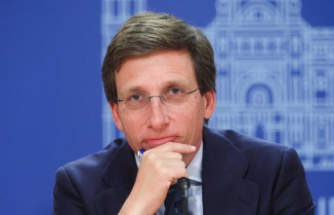My health 2020 is a text of law presented by the government with the aim of transform the French healthcare system. If this text includes measures that go in the right direction, in reality, this text is placed first in full continuity with the previous legislation, generating little in the way of real transformation of the model to the height of the stakes.
indeed, while our health care system must face a number of shocks (demographic, epidemiological, therapeutic, and technological), the measures introduced by the government are more adjustments that deep transformations.
The good points are the following:
● Modulation of the numérus clausus according to the needs of the territories in the doctors on a joint decision of the university and the regional agency for health and replacing the contest cleaver first year with an orientation-stepwise selection over a period of 3 to 5 years. We cannot, however, regret that these needs are not also being defined by the regions, yet in charge of the initial training of health professionals. Once more the divide between doctors and non-doctors is maintained, counter to the needs of the patients and expectations of health professionals.
● "Creation" of 500 hospitals in the vicinity with the objective of making work in these small hospitals that do not practice or surgery or obstetrics at the time of hospital doctors and physicians. Wholesale small public hospitals for consultations and routine care that will compete with group practices, and nursing homes.
● Financing of some actions in the hospitals, not exclusively to the activity (T2A), but according to "sequences of care". The concept is attractive but the sharing of responsibilities and of revenues between different stakeholders is very delicate. The government's goal here is to reduce by 20% the share of activity-based funding in hospitals to be replaced by funding to the quality and missions.
● Creation of a single contract to attract physicians to work at the hospital and bring down the exorbitant cost of the acting.
● Strengthening of telemedicine and opening of health data.
Why, in spite of these advances, the transformation of our health system is not at the rendezvous?
1 - The reform revolves around the pot about the hospital: the single contract for physicians is a stopgap to make people forget that it is the public status of officers of hospitals, doctors or not, he needs to turn in the contract (the act public service will only for the officers). Above all this reform does not address the question of the status of hospitals which appears today as an obstacle to the modernisation of these structures.
2 - The reform does régionalise not more regulation of the health system and do not give more management autonomy to hospitals. Thus, the myth of the efficiency of a centralized system stays maintained.
3 - The reform improves not enough, and not responsible over the medicine of city.
4 - The reform does not unblock really telemedicine since the CNAM requires that one has already consulted at least once by a physician to be able to get a refund then a tele-consultation. The last balance-sheet items presented by the CNAM confirm the boot very shy of telemedicine in France
5 - The reform does not call into question the double floor CNAM / mandatory supplementary health care so expensive in France ($16 billion cost of management per year), while many countries (Germany, netherlands, Switzerland...) are involved in the competition of funds that offers the choice to the insured, lowers management costs, and leads to the evaluation of the quality of care. In the same way the double steering-State Insurance remains maintained, with the risk maintained a health policy with multiple actors in competition.
Still a lot to do for true "transformation" of our health system.
FigaroThe Macronomètre, the observatory of reforms in the government, is a site of the Fondation iFRAP in partnership with The Figaro.fr. It is a tool dedicated to the assessment of the quinquennium of Emmanuel Macron: econometric evaluation in relation to its electoral programme and announcements of his government. With The Macronomètre, the action of the government is to be marked out of 10 each Wednesday prior to the council of ministers and becomes readable in a single glance. The Macronomètre allows each to make a notice on the holding or not of the promises of the president of the Republic and on the effectiveness of the reforms of the government.
Date Of Update: 06 April 2019, 00:00












